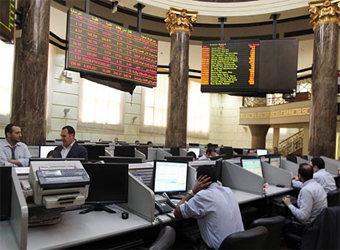According to a recent report released by the global leader in business intelligence Oxford Business Group, the stock market in Egypt got off to a bullish start in 2013, but political deadlock, ongoing unrest across the country, a rising government budget deficit, foreign reserve losses and currency depreciation have all seen the Egyptian Exchange (EGX) struggle in recent weeks. A recent government decision to impose a tax on all EGX transactions is likely to contribute to continued unstable performance.
The market reached a three-week high on February 5, but the main EGX30 Index fell 1.8% the following day and has not recovered since. The week of February 18, the total value of shares for companies listed on the EGX dropped EGP 5.5bn ($816m), and the benchmark index fell to 5627 points. Since February 21, the EGX30 has fallen 80.5 points, exacerbated by investor concerns over the country’s inability to secure a $4.8bn loan agreed by the IMF. Egypt signed a preliminary deal for the loan with the institution last November, but delayed final agreement fearing a backlash among its people against austerity policies in the run-up to a referendum on the new constitution.
Despite the EGX30’s January show of resilience, the index remains nearly 1000 points below its closing mark two years ago on the eve of the uprising that ousted President Hosni Mubarak. Pre-revolution the index breached 6000.
A recent decision to impose a 0.001% tax on all EGX trades could make investors even more cautious. The tax, part of a modified economic program to shore up the budget deficit in the hopes of obtaining the IMF loan, is accompanied by increases in sales taxes on several commodities and fuel price hikes for energy-intensive industries.
Sovereign debt ratings have also plummeted in the past two years. Standard and Poor’s (S&P) downgraded Egypt to ‘B-’ from ‘B’ at the end of December, marking the agency’s fifth reduction for the country since the revolution began. The downgrade puts the country in the same junk-bond bracket as Pakistan and Greece.
A month on, Fitch lowered the government’s rating to ‘B’ from ‘B+’ amidst deadly clashes on the second anniversary of the revolution. Moody’s followed suit two weeks later, lowering Egypt’s B3 rating to B2.
In a statement echoed by other rating agencies, S&P claimed that turmoil had “weakened Egypt’s institutional framework, and the increasingly polarized political discourse could diminish the effectiveness of policy-making”.
All three agencies have maintained a negative outlook, citing concerns about the impact Egypt’s budget deficit and foreign exchange reserve could have on economic stability and recovery.
Egypt’s budget deficit reached EGP 91.5bn ($13.59bn), or 5.1% of GDP during the last six months of 2012, fuelled by the post-revolution economic downturn, which left the government having to grapple with a drop in tax revenues alongside rising expenditure in the form of higher subsidies and public sector pay increases. Planning Minister Ashraf Al-Araby has warned that the deficit could more than double by the end of the fiscal year in June 2013.
The country’s economic woes were exacerbated further by a drop in foreign exchange reserves, which was triggered by a lull in foreign investment and a sluggish performance by the tourism industry. Reserves fell more than 60% to $13.6bn in January from a pre-revolution high of $36bn. As a result, reserves failed to meet the $15bn target needed to cover three months of imports.
In the absence of meaningful reform, the government has urged Egyptians to avoid engaging in currency speculation, while insisting that it will continue to pay interest on its foreign debt and permit foreigners who have invested in the stock exchange to transfer money out of the country.
The Central Bank moved to protect foreign reserves on December 30 by introducing a new auction system limiting the amount of dollars lenders are able to buy. However, the new measures failed to stop Egypt’s currency depreciating to its lowest level in at least eight years. The Egyptian pound fell to 6.73 against the dollar in late February, marking an 8% loss of value from December 30 and a 13.4% drop since the beginning of the revolution.
As a destination for direct investment, Egypt’s long-term fundamentals – including favorable demographics, reasonable trade infrastructure, and strong domestic demand –are encouraging. However, failure to stabilize the currency, combined with the growing budget deficit and declining foreign reserves, have thwarted the government’s plans to take up the $4.8bn loan agreed by the IMF.
While economists broadly agree that the IMF loan and associated reform measures are necessary to shore up foreign reserves and bolster investor confidence, the credit downgrades reflect a growing doubt among analysts that the financing will come through soon.
About OBG:
Founded as a research publishing firm in 1994 by Oxford graduates and originally based in the university town, OBG is today a British company with world-wide reach, employing more than 200 staff and continuing its commitment to producing detailed analysis. The Group publishes authoritative reports and on-line economic briefings covering 34 countries around the world from its offices in Istanbul, Dubai and London and a network of local bureaus in the countries in which it operates.


